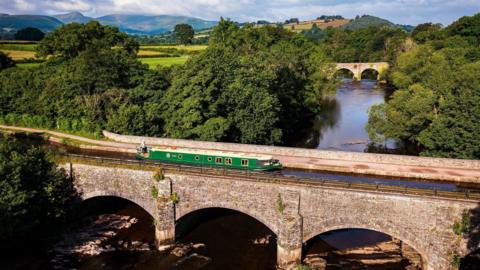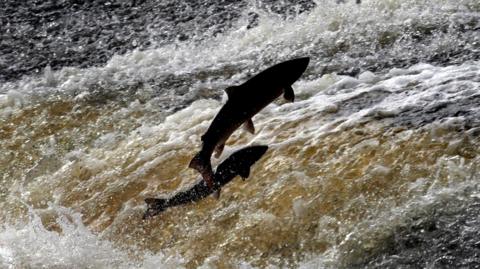Gavin Bown from Natural Resources Wales said regulating water abstraction was "a complex, evidence-based process that carefully balances environmental needs with those of local communities".
"Our priority is to protect the integrity of the River Usk and the Severn Estuary, both designated as special areas of conservation," he explained, adding the regulator would continue to work collaboratively with the Canal and River Trust.
A Welsh Water spokesman said the River Usk was "one of the primary sources of drinking water to around 250,000 customers across south east Wales".
But it remained "one of our least drought resilient supply areas", with limited water resources to deal with the impacts of climate change and population growth.
"We have proposed in the driest of years to supply some customers with water from the River Tawe through an emergency pumping station and use this spare capacity in abstraction from the River Usk to support the canal," he explained.
However this would come at a cost, with discussions ongoing over whether this would be affordable to the trust.
"To provide this free of charge or risk the future supply of drinking water to our customers, isn't an option for us," he said.
The Welsh government said "protecting and enhancing our environment and natural resources is key to addressing the climate and nature emergencies".
"The limits placed on the licences were in line with the amounts applied for by the Canal & River Trust," a spokesperson said.
They added any arrangement between the canal and Welsh Water would be a commercial contractual decision in which the Welsh government should play no role.

